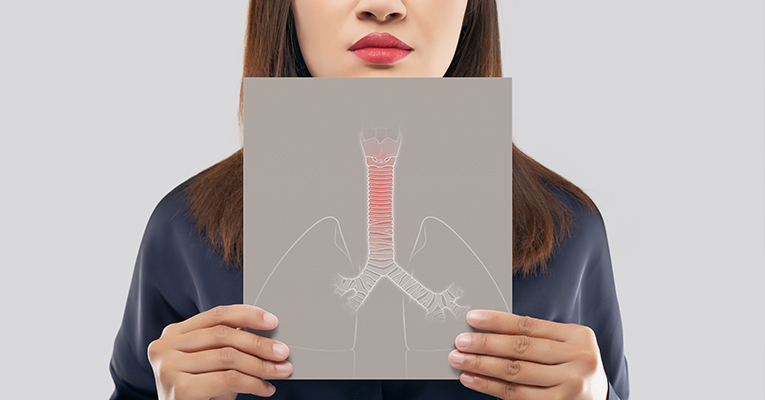Esophagus disorders are a group of ailments that alter how the esophagus functions. The esophagus, often known as the food pipe, is a digestive organ that transports food from the mouth to the stomach.
A variety of conditions can affect the esophagus, leading to dysphagia or difficulty in swallowing. Gastrointestinal reflux disease is the most frequent esophageal ailment (GERD). GERD is a disorder in which too much stomach acid flows back into the esophagus, producing irritation.
Types of esophagus disorders:
The following are examples of esophageal disorders:
- The most prevalent esophageal ailment is GERD, which develops when the sphincter muscles fail to seal correctly. As a consequence, stomach juices and content are forced back into your esophagus.
- Achalasia is a condition in which the lower esophageal sphincter doesn’t always open or relax, preventing food from entering the stomach. Achalasia is thought to be an autoimmune condition, although the actual etiology is unclear. Something is causing nerve damage to the muscles of the esophagus.
- Barrett’s esophageal cancer: When patients have persistent, unresolved acid reflux, the membrane of their esophagus begins to resemble the stomach lining, and the cells begin to resemble intestinal cells. These changes take place at the esophageal-gastric junction. This disorder is linked with an increased risk of esophageal cancer.
- Esophageal cancer is classified into two types: squamous cell carcinoma and adenocarcinoma. In general, smoking, radiation, and HPV infection all raise the chance of squamous cell carcinoma, whereas acid reflux and smoking both increases the risk of adenocarcinoma.
- Outpouching occurs in an esophageal diverticulum, which is a weak area in the esophagus. Diverticula are more common in those who have achalasia.
- Esophageal spasms: The esophagus experiences abnormal muscular spasms (contractions). This uncommon and unpleasant ailment prevents food from entering the stomach.
- Esophageal strictures are narrowing of the esophagus. Food and drinks travel slowly through to the stomach.

Risk factors for esophageal disease:
The following factors enhance the likelihood of acquiring an esophageal disorder:
- Consumption of alcoholic beverages.
- Obesity or pregnancy-related weight gain
- Medications such as antibiotics, antidepressants, and pain medications.
- Radiation treatment to the neck or chest.
- Smoking, including secondhand smoke exposure
Symptoms and causes of esophagus disorders:
The symptoms of esophageal and swallowing diseases differ based on the kind. You may encounter:
- Backache, chest pain, or abdominal pain
- A chest infection or sore throat.
- Difficulty swallowing or the sensation that food is trapped in your throat
- indigestion
- Wheezing or hoarseness
- Constipation
- Vomiting or regurgitation (stomach acids or contents flowing back up your esophagus to your mouth).
- Unknown cause of weight reduction.
Diagnosis of esophagus disorders:
Your symptoms will be evaluated and a physical exam will be performed by your healthcare practitioner. They could feel your neck as you swallow. The following tests are used to diagnose esophageal disorders:
- Top endoscopy uses a long, narrow scope to examine the upper region of the digestive system. Your provider may also collect tissue samples for biopsy in order to search for symptoms of inflammation, cancer, or other disorders.
- Imaging is used in gastrointestinal X-rays to view how a liquid barium solution passes through the esophagus and digestive tract.
- Esophageal manometer evaluates how well your esophageal and lower esophageal sphincter muscles operate when you swallow a drink.
- The quantity of gastric acid (pH level) in your esophagus is measured by an esophageal pH test.
Treatment of esophagus disorders:
Treatments of esophageal diseases differ according to the condition. They might include:
- To lower stomach acid, use antacids, proton pump inhibitors, and histamine receptors (H2) blockers.
- Endoscopic dilation is used to open a constricted esophagus or loosen a sphincter muscle.
- Injections of botulinum toxin (Botox®) to temporarily cease esophageal spasm or soften the sphincter muscle.
- Esophagectomy is a surgical procedure that removes some or all of the damaged esophagus.
- By strengthening the lower esophageal sphincter, laparoscopic antireflux surgery can cure GERD or a hiatal hernia.
- Peroral endoscopic myotomy (POEM) is the procedure used to treat achalasia and esophageal spasms.
Prognosis of esophageal and swallowing diseases:
What are the side effects of esophageal disorders?
Certain esophageal problems, such as GERD and achalasia, might raise your chances of esophageal cancer if left untreated. Food may enter your airway (windpipe) and lungs as a result of regurgitation. Aspiration is an issue that can progress to pneumonia and lung disorders. Swallowing issues also increase your risk of malnutrition and dehydration.
What is the prognosis for persons suffering from esophageal disorders?
Many persons with esophageal issues find that over-the-counter or prescription drugs relieve their symptoms. Surgery may be required for some disorders, such as esophageal cancer or achalasia. Treatments coupled with diet and lifestyle modifications can help to control symptoms.
What should I know during my visit to my provider?
To know about esophagus disorders, you might talk to a doctor about:
- What is the nature of my esophageal disorder?
- What was the cause of this esophageal disorder?
- What is the most effective therapy for this esophageal disorder?
- What are the dangers and side effects of treatment?
- Is there a chance I’ll get other esophageal disorders?
- What diet or lifestyle adjustments may I do to safeguard my health?
- Should I keep an eye out for complications?
See Also: Lower Esophageal Sphincter and Its Anatomy: A Guideline
Bottom line:
Esophageal and swallowing problems can be unpleasant or uncomfortable. GERD, the most common kind, produces heartburn. If left untreated, GERD and other esophageal problems might increase your chance of developing esophageal cancer. Medications frequently alleviate symptoms and keep many disorders under control. More severe esophageal diseases, such as cancer and achalasia, may necessitate surgery. To lower your chance of pain and significant problems, your healthcare professional may prescribe dietary and lifestyle modifications.


